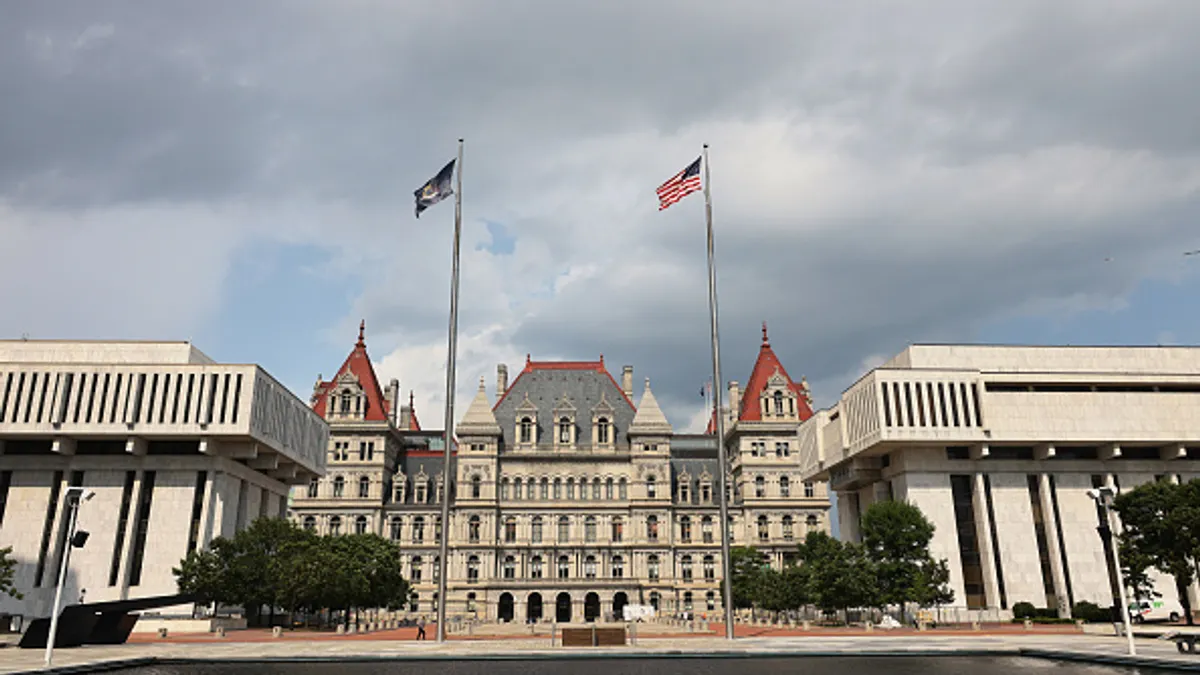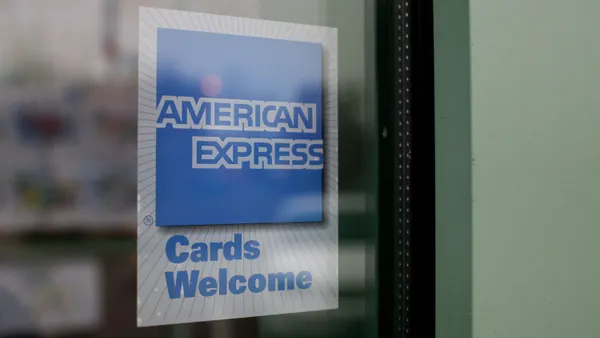New York’s legislature has passed a bill that prohibits retail establishments in the state from refusing to accept cash. Now, the bill awaits review by Gov. Kathy Hochul.
Sen. James Sanders and Assemblymember Catalina Cruz, the Democrats who sponsored the legislation, argued it was essential to protect low-income, unbanked and elderly consumers who rely significantly on cash, the senator said in a press release last week.
“As more businesses adopt cashless policies, this bill protects the many New Yorkers—particularly low-income individuals, undocumented immigrants, and seniors—who rely on cash to make purchases,” Sanders said in a comment emailed by his staff. “For many low-income residents, opening a bank account is not a realistic option due to minimum balance requirements, overdraft fees, lack of nearby branches, or mistrust of financial institutions.”
The bill was backed mainly by Democrats, but also had some Republican support. A spokesperson for Hochul didn’t respond to a request seeking comment about her position on the bill.
Sanders, who represents an area of Queens, in New York City, also noted concern for undocumented individuals who face other barriers, including a lack of identification to open a bank account or a fear their information may be shared with federal agencies that could take actions against them.
“Cashless business models may seem efficient, but they effectively shut out some of the most vulnerable people in our state from everyday transactions, including many of my constituents,” he said in the emailed statement.
The New York legislation, which the state’s Senate and Assembly passed on May 29, calls for civil penalties of up to $1,000 if stores refuse to accept cash, and up to $1,500 for any establishment’s subsequent violations. It specifically cites “food stores” as subject to the bill.
“Cash is still king for many New Yorkers who live paycheck to paycheck or who simply don’t have access to credit or banking services,” Sanders said in the June 2 release touting the new law.
Sanders has been active on payments legislation in the past.
Last year, he introduced proposals to regulate the burgeoning buy now, pay later industry, seeking to limit fees on such services, among other provisions. Hochul sought to take action on BNPL last year, but ultimately her effort petered out after encountering resistance. This year, she signed a budget in May that imposes oversight on the BNPL providers.
On the cashlessness issue, Sanders was following the lead of other cities and states. New York City has an ordinance proscribing cashless stores. That law, enacted in 2020, calls for a $1,000 fine for a first violation and $1,500 for subsequent infractions.
Other cities have taken similar action. Washington, DC’s city council unanimously passed the Cashless Retailers Prohibition Amendment Act in 2019 to stop merchants from banning cash. Philadelphia passed a similar law the same year, as did San Francisco.
States have also addressed the issue. New Jersey outlawed cash-free establishments as of 2019, decades after Massachusetts first outlawed it in 1978. Colorado passed a similar law in 2021.
That same year, U.S. Rep. Donald Payne Jr., a Democrat from New Jersey, was pushing for a similar law in Congress, called the Payment Choice Act, making similar arguments. That effort came as the Federal Reserve was exploring a central bank digital currency and after a rise in credit card and digital wallet use, especially by young and affluent U.S. consumers.
“There is kind of an attack on American currency right now,” Payne said in an interview that year, citing 55 million Americans who don’t have a bank account or credit card. “It kind of looks like a move toward a cashless society, but this move would really prevent a lot of Americans from buying necessities like food and medicine.”
Payne, a six-term Congress member who first introduced the bill in 2019, died last year. But an effort to pass the Payment Choice Act lives on, with bipartisan support.
Clarification: The story has been updated to include Gov. Hochul’s action on BNPL this year.














